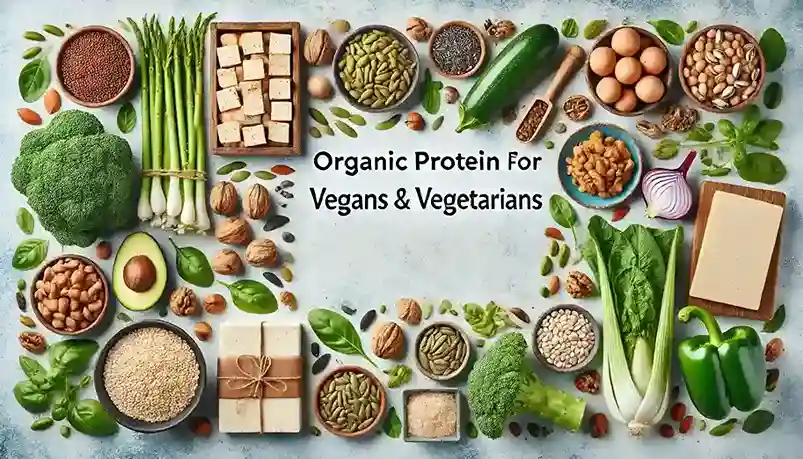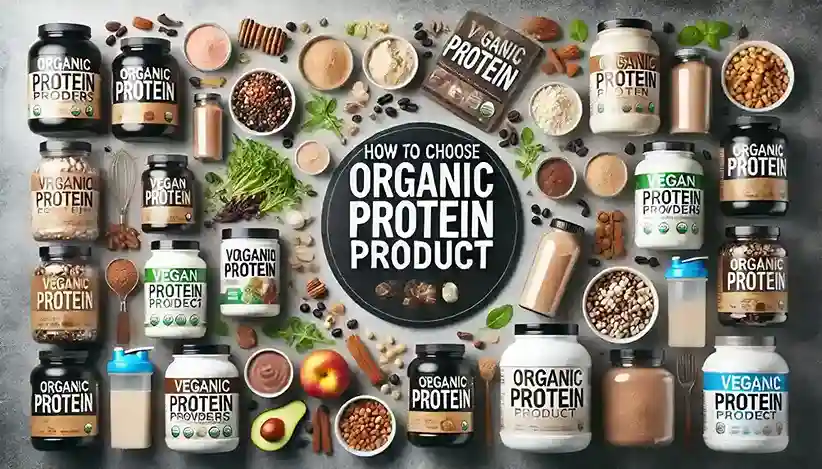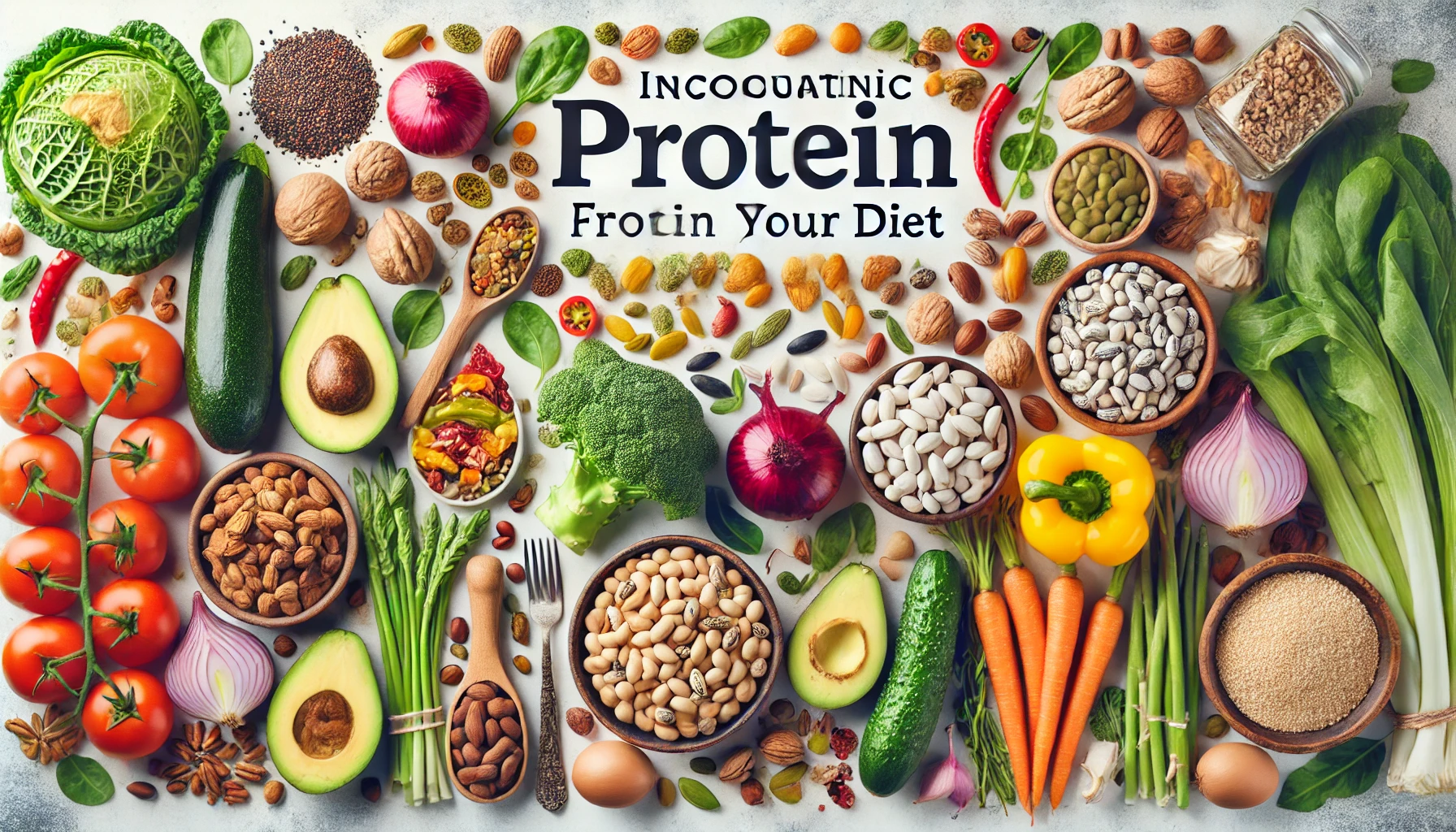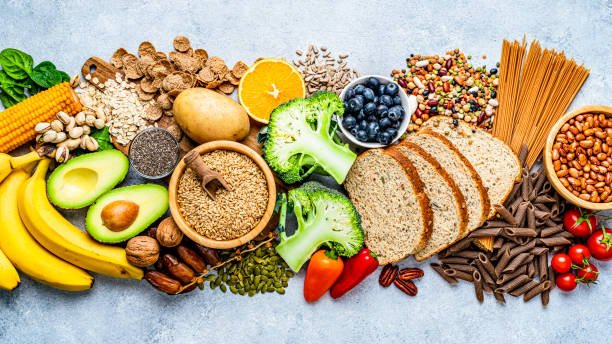Introduction to Organic Protein
Organic protein has become a popular choice for individuals who prioritize clean eating and sustainability. Derived from organic sources, this type of protein is cultivated without the use of synthetic pesticides, herbicides, fertilizers, or genetically modified organisms (GMOs). Whether you are an athlete looking for muscle recovery support or someone seeking to maintain a healthy lifestyle, organic protein offers numerous benefits over conventional protein.
Understanding the different types and benefits of organic protein can help you make informed decisions about the best sources for your nutritional needs. From plant-based to animal-based options, organic protein caters to a wide range of dietary preferences and health goals.
What is Organic Protein?
Organic protein refers to protein sourced from plants or animals that are raised or grown in compliance with organic farming standards. These standards prohibit the use of harmful chemicals, GMOs, and artificial additives in the farming process, ensuring a cleaner and more natural protein source. Organic protein can be found in whole foods like legumes, seeds, dairy products, and meat, as well as in supplements such as protein powders and bars.
Unlike conventional protein, which may be exposed to chemical residues and artificial enhancers, organic protein is produced in a way that supports both human health and the environment. This makes it a popular option for health-conscious individuals seeking high-quality nutrition without unwanted additives.
How is Organic Protein Made?
Organic protein is made by following strict guidelines set by organic certification organizations, which vary from country to country. For plant-based organic protein, crops like peas, soy, and hemp are grown in organic soil without the use of synthetic pesticides, herbicides, or fertilizers. The protein is then extracted, processed, and packaged to meet organic standards.
Animal-based organic protein, on the other hand, comes from animals raised on organic farms. These animals are fed organic diets, are not treated with antibiotics or growth hormones, and have access to outdoor grazing or natural environments. For example, organic whey protein is derived from the milk of organically raised cows, ensuring the final product is free from contaminants found in conventional farming practices.
Why Choose Organic Over Conventional Protein?
- Health Benefits: Organic protein is free from synthetic chemicals and GMOs, reducing the risk of exposure to harmful substances. This makes it a cleaner, safer option, particularly for individuals with sensitivities or allergies.
- Environmental Impact: Organic farming practices support soil health, biodiversity, and reduce the use of harmful chemicals that can contaminate water sources and harm ecosystems. Choosing organic protein contributes to sustainable farming and environmental conservation.
- Higher Nutritional Quality: Organic protein sources are often more nutrient-dense, as they are grown or raised in conditions that prioritize the quality of the soil or the health of the animals. This can lead to higher levels of vitamins, minerals, and antioxidants in organic protein compared to conventional options.
- Ethical Considerations: For those concerned with animal welfare, organic animal-based proteins come from animals that are raised in more humane conditions, with access to outdoor grazing and natural environments.
Types of Organic Protein

Organic protein comes in various forms, each offering unique benefits depending on your dietary preferences and health goals. Below are the primary categories of organic protein:
Plant-Based Organic Protein
Plant-based organic protein is an excellent option for vegans, vegetarians, or anyone looking to reduce their intake of animal products. Common sources of plant-based organic protein include:
- Pea Protein: Derived from yellow peas, pea protein is rich in essential amino acids and is easy to digest. It’s an excellent choice for individuals with soy or dairy allergies.
- Hemp Protein: Hemp seeds are a complete protein source, containing all nine essential amino acids. They are also rich in omega-3 and omega-6 fatty acids, making them beneficial for heart health.
- Brown Rice Protein: This is a hypoallergenic option, making it ideal for individuals with food sensitivities. Brown rice protein is easy to digest and often blended with other plant-based proteins to enhance its amino acid profile.
Animal-Based Organic Protein
Animal-based organic protein comes from animals raised on organic farms, ensuring the protein is free from antibiotics, growth hormones, and synthetic additives. Popular sources include:
- Organic Whey Protein: Whey is derived from milk and is considered one of the best sources of complete protein, as it contains all the essential amino acids. Organic whey protein is ideal for muscle recovery and building lean muscle mass.
- Organic Egg Protein: Eggs from organically raised chickens are another excellent source of complete protein. Egg protein is particularly beneficial for muscle growth and repair.
- Organic Chicken and Beef: Organic meats are free from artificial hormones and antibiotics, offering a cleaner source of protein for those who consume animal products.
Blended Organic Protein Sources
Blended organic protein products combine plant-based and animal-based protein sources to create a balanced, nutrient-rich option. These blends can offer the best of both worlds, providing all essential amino acids while supporting various dietary needs. For example, some protein powders mix pea, hemp, and rice proteins to create a complete plant-based protein that rivals animal-based proteins in quality.
Blended protein sources are also popular in supplements designed for athletes and fitness enthusiasts, as they offer a versatile, comprehensive approach to meeting daily protein requirements.
The Nutritional Benefits of Organic Protein

Organic protein offers numerous nutritional advantages due to its purity and sustainability. Free from synthetic chemicals and additives, it provides a clean way to nourish your body. Whether you want to build muscle, lose weight, or maintain a balanced diet, organic protein supplies essential nutrients for optimal health.
High Protein Content
Organic protein is rich in essential amino acids, making it a key macronutrient for muscle growth, tissue repair, and overall cellular function. It supports athletes, fitness enthusiasts, and those looking to maintain or increase muscle mass. Organic protein powders, bars, and snacks provide concentrated protein sources without unnecessary fillers or additives.
Rich in Vitamins and Minerals
Organic protein sources, especially plant-based ones, are often packed with essential vitamins and minerals like magnesium, iron, potassium, and B vitamins. These nutrients support vital functions like energy production and immune health. Hemp protein is rich in omega-3 and omega-6 fatty acids, while pea protein offers a high iron content, making it ideal for those with anemia risk. Animal-based organic proteins, like eggs and dairy, contain vitamins B12 and D, crucial for bone health and energy.
Free from Harmful Chemicals and Additives
Organic protein is free from synthetic pesticides, GMOs, and harmful additives, thanks to organic farming practices. In contrast to conventional protein sources, which may come from animals treated with antibiotics or hormones, organic animal protein is sourced from animals raised in natural, healthier environments. This ensures cleaner, safer protein without the risk of chemical toxins entering your diet.
Organic Protein for Vegans and Vegetarians

For vegans and vegetarians, getting enough high-quality protein can be a challenge, especially when avoiding animal-based products. Organic plant-based protein is an excellent solution, offering all the benefits of conventional protein without relying on animal sources. With a variety of options available, vegans and vegetarians can easily meet their daily protein needs while maintaining a healthy, balanced diet.
Best Plant-Based Sources of Organic Protein
- Pea Protein: Pea protein is one of the most popular plant-based organic protein sources. It contains every one of the nine fundamental amino acids, making it a total protein. It is additionally hypoallergenic, making it ideal for those with food responsive qualities.
- Hemp Protein: Derived from hemp seeds, this protein is not only rich in essential amino acids but also provides a good balance of omega-3 and omega-6 fatty acids. Hemp protein is highly digestible, making it a great option for people with digestive issues.
- Chia Seeds: Chia seeds are packed with protein, fiber, and omega-3 fatty acids. These tiny seeds can be added to smoothies, oatmeal, or baked goods to boost protein intake without the need for animal products.
- Brown Rice Protein: Brown rice protein is another complete protein that is hypoallergenic and easy to digest. It’s often blended with other plant-based proteins to create a balanced amino acid profile.
- Quinoa: Quinoa is not only a high-protein grain but also a complete protein source, making it ideal for vegans. It can be used as a base for salads, in soups, or as a side dish to provide a protein boost to any meal.
How to Meet Daily Protein Needs Without Meat
Meeting your daily protein needs without meat requires a bit of planning but is entirely achievable with organic plant-based protein sources. The key is to consume a variety of protein-rich foods to ensure you are getting all essential amino acids. Some strategies include:
- Incorporating Protein-Rich Snacks: Add organic protein bars, smoothies, or shakes to your daily routine to supplement meals with extra protein.
- Eating Protein with Every Meal: Include a source of organic protein in each meal, whether it’s tofu, legumes, seeds, or a protein powder.
- Combining Protein Sources: Combine different plant-based proteins to ensure you’re consuming a complete amino acid profile. For example, pairing brown rice with beans can provide a full spectrum of amino acids.
Organic Protein for Building Muscle
Contrary to popular belief, you don’t need animal-based protein to build muscle. Organic plant-based protein can be just as effective, provided you consume enough protein and ensure you’re getting a balance of essential amino acids.
- Pea Protein for Muscle Growth: Pea protein is particularly high in branched-chain amino acids (BCAAs), which are essential for muscle growth and recovery. It’s a great choice for vegans and vegetarians looking to support muscle development.
- Hemp Protein for Recovery: Hemp protein’s omega fatty acid content helps reduce inflammation and speed up muscle recovery after workouts. It’s also rich in fiber, which supports digestion and overall health.
- Protein Timing: For optimal muscle-building, it’s important to consume organic protein around your workouts. Pre-workout snacks with organic protein can provide fuel for your muscles, while post-workout protein shakes help repair and rebuild muscle tissue.
By choosing organic protein sources, vegans and vegetarians can effectively meet their protein needs, support muscle growth, and enjoy a variety of nutritional benefits without relying on animal products.
How to Choose the Best Organic Protein Product

Reading Organic Labels
When selecting an organic protein product, it’s crucial to check for proper certification, such as the USDA Organic seal. This certification ensures the product meets strict organic farming and production standards, with at least 95% organic ingredients. Make sure the label explicitly states “organic” and avoid vague terms like “natural” or “pure,” which don’t guarantee the product is fully organic.
Checking for Additives and Preservatives
Even certified organic products can contain natural additives or preservatives. Check the ingredient list to ensure there are no unnecessary fillers, artificial sweeteners, or synthetic chemicals like hydrogenated oils. Look for products sweetened with natural alternatives such as stevia or monk fruit if you prefer a flavored protein, or choose those with minimal ingredients if you want an unflavored option.
Best Brands for Organic Protein
Several trusted brands offer high-quality organic protein products. For example:
- Orgain provides a variety of organic plant-based and animal-based protein powders and bars, all certified organic, gluten-free, and non-GMO.
- Garden of Life specializes in USDA Certified Organic plant-based protein powders that contain no added sugars or artificial ingredients.
- Sunwarrior offers vegan-friendly organic protein powders that are non-GMO, gluten-free, and soy-free.
- Nutiva focuses on sustainable, organic protein sources like hemp, with USDA certification and eco-friendly practices.
Choosing reputable brands and checking labels ensures you get high-quality organic protein aligned with your health and wellness goals.
Incorporating Organic Protein into Your Diet

Organic Protein in Smoothies
One of the easiest ways to include organic protein is by adding it to smoothies. Simply blend your favorite organic protein powder with fruits, vegetables, and a liquid base like almond milk or water. This makes for a quick, nutritious breakfast or post-workout shake that supports muscle recovery and provides sustained energy.
Organic Protein in Meals
You can also incorporate organic protein into your meals. Add organic protein powder to soups, stews, or even baked goods like muffins and pancakes for an extra protein boost. If you prefer whole food options, include organic protein-rich foods such as quinoa, lentils, and grass-fed meats in your meals to meet your daily intake.
Organic Protein Snacks
For snacking, organic protein bars or homemade energy bites made with organic protein powder are convenient options. You can also enjoy a handful of nuts, seeds, or edamame for plant-based organic protein on the go. These snacks are perfect for keeping you full and energized between meals.
How Organic Protein Supports Weight Loss

Organic protein can be a powerful tool in supporting weight loss goals. Its high nutrient density, combined with the absence of harmful additives, makes it a clean and effective way to manage weight. Protein plays a crucial role in promoting satiety, muscle preservation, and fat loss, making organic protein an ideal choice for those looking to shed extra pounds.
Role of Protein in Weight Management
Protein is essential for weight management because it helps increase satiety, reducing the likelihood of overeating. When you consume protein, it takes longer to digest compared to carbohydrates or fats, keeping you full for longer periods. Additionally, protein supports muscle maintenance during weight loss, ensuring that you lose fat while preserving lean muscle mass. This helps improve metabolism, as muscle tissue burns more calories than fat, even at rest.
Organic Protein Shakes for Weight Loss
Organic protein shakes are a convenient and effective way to supplement your diet with high-quality protein while keeping calories in check. They can be used as meal replacements or snacks to help control hunger and support muscle recovery after exercise. Organic protein shakes are free from artificial sweeteners, preservatives, and other harmful additives, making them a healthier option for those looking to lose weight. When combined with a balanced diet and regular exercise, these shakes can help accelerate fat loss.
Best Organic Protein Foods for Weight Loss
Incorporating organic protein-rich foods into your diet is key to successful weight management. Some of the best options include:
- Legumes: Organic lentils, chickpeas, and black beans are rich in protein and fiber, helping to keep you full and satisfied while supporting digestion.
- Seeds and Nuts: Chia seeds, hemp seeds, and almonds offer a good source of protein, healthy fats, and fiber, making them ideal for weight loss.
- Organic Lean Meats: Organic chicken, turkey, and grass-fed beef provide high-quality protein without the added hormones and antibiotics found in conventional meat.
- Plant-Based Organic Protein: Foods like organic quinoa, tofu, and edamame are great sources of plant-based protein, offering essential nutrients while keeping calorie intake low.
By focusing on organic protein sources, you can enjoy nutrient-dense meals that support weight loss while maintaining a clean and healthy diet.
Who Should Use Organic Protein?

Athletes and Fitness Enthusiasts
Athletes and fitness enthusiasts can benefit from organic protein to support muscle recovery and growth. The clean, natural ingredients in organic protein provide essential amino acids without artificial additives, making it ideal for post-workout recovery and meeting daily protein needs.
Individuals with Food Sensitivities
People with food allergies or sensitivities often find organic protein easier to digest. Organic proteins, especially plant-based options, are free from common allergens like dairy, soy, and gluten, offering a cleaner, gentler option for sensitive individuals.
People Seeking Sustainable Food Sources
If you’re focused on sustainability, organic protein is an excellent choice. Organic farming practices avoid harmful pesticides and GMOs, promoting environmental health. Choosing organic protein supports a more sustainable food system, making it an ideal option for eco-conscious consumers.
Common Myths About Organic Protein
Is Organic Protein More Expensive?
Organic protein is often perceived as significantly more expensive, but the price difference is usually marginal when considering the health benefits, absence of harmful chemicals, and environmental impact. The higher cost reflects the stricter farming practices, but increased demand is driving prices down as more brands offer organic products, making it a worthwhile investment.
Does Organic Protein Taste Different?
Many people find that organic protein has a cleaner, fresher taste compared to non-organic options, as it is free from synthetic chemicals and additives. Plant-based proteins like hemp or pea protein often have a natural, earthy flavor, while animal-based options like organic whey tend to have a creamier texture. Taste preferences vary, but organic protein is generally seen as more wholesome.
Are Organic Protein Supplements Less Effective?
Contrary to myth, organic protein is just as effective as conventional protein for muscle growth and general health. It provides the same essential amino acids without harmful additives that could interfere with nutrient absorption, making it a pure and effective choice for health-conscious individuals.
Key Takeaways
- Clean Nutrition: Organic protein is free from harmful chemicals, GMOs, and synthetic additives, making it a healthier option for people conscious about what they consume.
- Variety of Sources: Organic protein comes from diverse sources such as plants (peas, hemp, rice), animals (eggs, milk), and blends that combine both plant and animal proteins.
- Health Benefits: It supports muscle growth, recovery, weight management, and overall well-being. It’s especially beneficial for people with allergies or sensitivities to conventional proteins.
- Sustainability: Organic protein supports environmentally friendly farming practices that promote soil health, reduce the carbon footprint, and contribute to biodiversity.
FAQs About Organic Protein
Q1. How Much Organic Protein Should You Consume Daily?
How much protein you ought to consume relies upon your singular necessities. A general guideline is about 0.8 grams of protein per kilogram of body weight for the average person. For athletes or individuals involved in heavy physical activity, this number may increase to 1.2-1.7 grams per kilogram.
Q2. Can You Build Muscle with Organic Protein?
Yes, you can build muscle with organic protein. As long as you’re consuming enough protein to meet your body’s demands, organic sources can support muscle repair and growth effectively. Many athletes and bodybuilders prefer organic protein for its cleaner composition and reduced exposure to harmful chemicals.
Q3. Is Organic Protein Better for Weight Loss?
Organic protein can be beneficial for weight loss due to its ability to help you feel full and satisfied while maintaining muscle mass. Additionally, organic protein sources are often lower in fat and free of artificial additives that can hinder weight loss efforts.
Q4. What Are the Best Sources of Organic Protein?
The best sources of organic protein include organic legumes (like beans and lentils), organic quinoa, organic eggs, organic chicken, and organic dairy products. For plant-based diets, organic pea protein and hemp protein are popular supplements.
Q5. Are Organic Protein Supplements Safe?
Yes, organic protein supplements are generally considered safe, especially when they are free from artificial additives, preservatives, and synthetic chemicals. Always check the label to ensure the supplement is certified organic.
Conclusion
Organic protein offers a clean, sustainable, and nutrient-dense option for individuals looking to enhance their health, build muscle, and support weight loss. By choosing organic sources, you benefit from high-quality protein free from harmful chemicals, additives, and GMOs. Whether plant-based or animal-based, organic protein provides the essential nutrients your body needs to function optimally while promoting muscle growth, recovery, and satiety.
Incorporating organic protein into your daily routine, whether through whole foods or supplements like shakes and bars, can help you achieve your health and fitness goals while contributing to a more sustainable and environmentally friendly way of eating.
